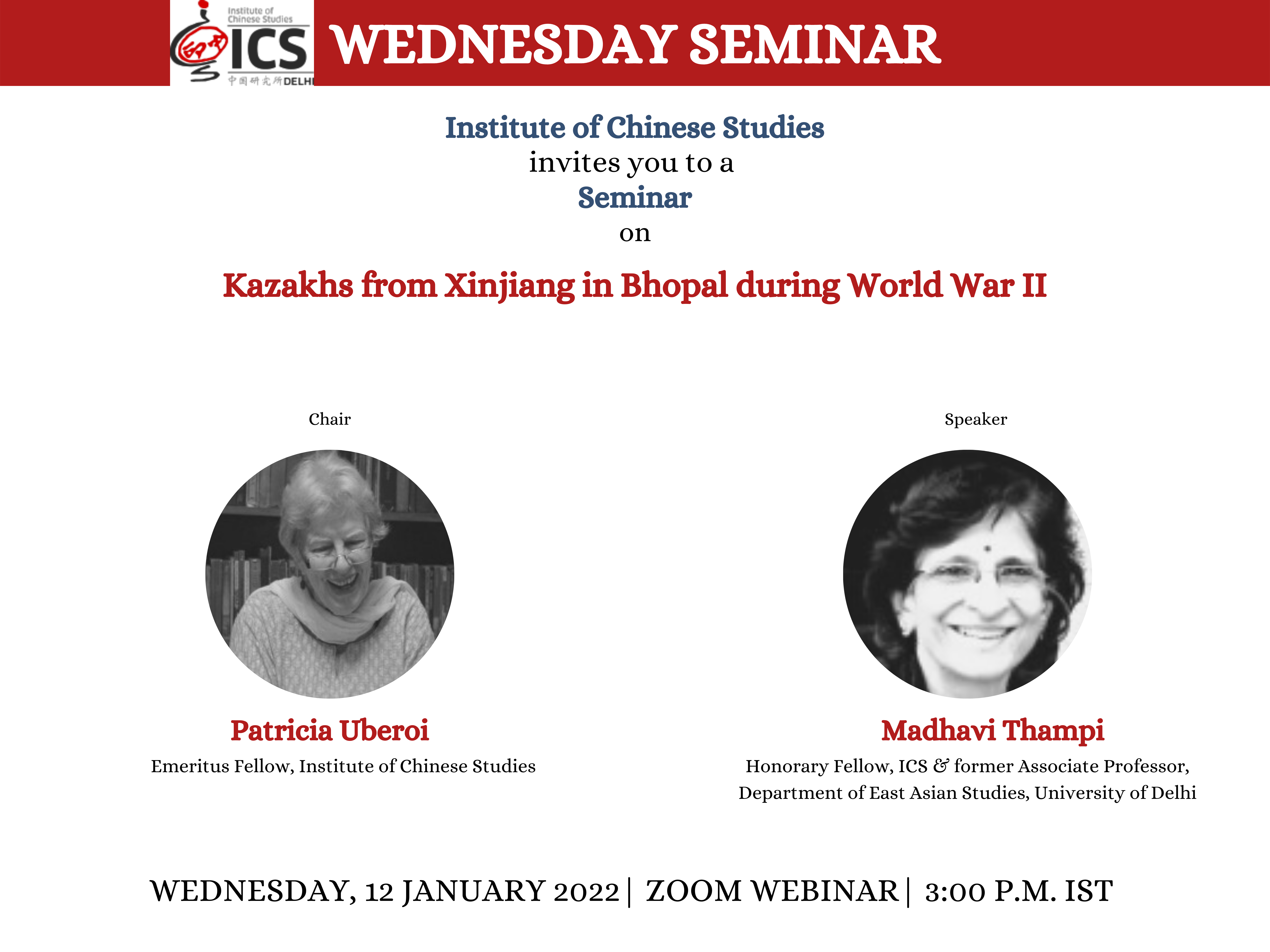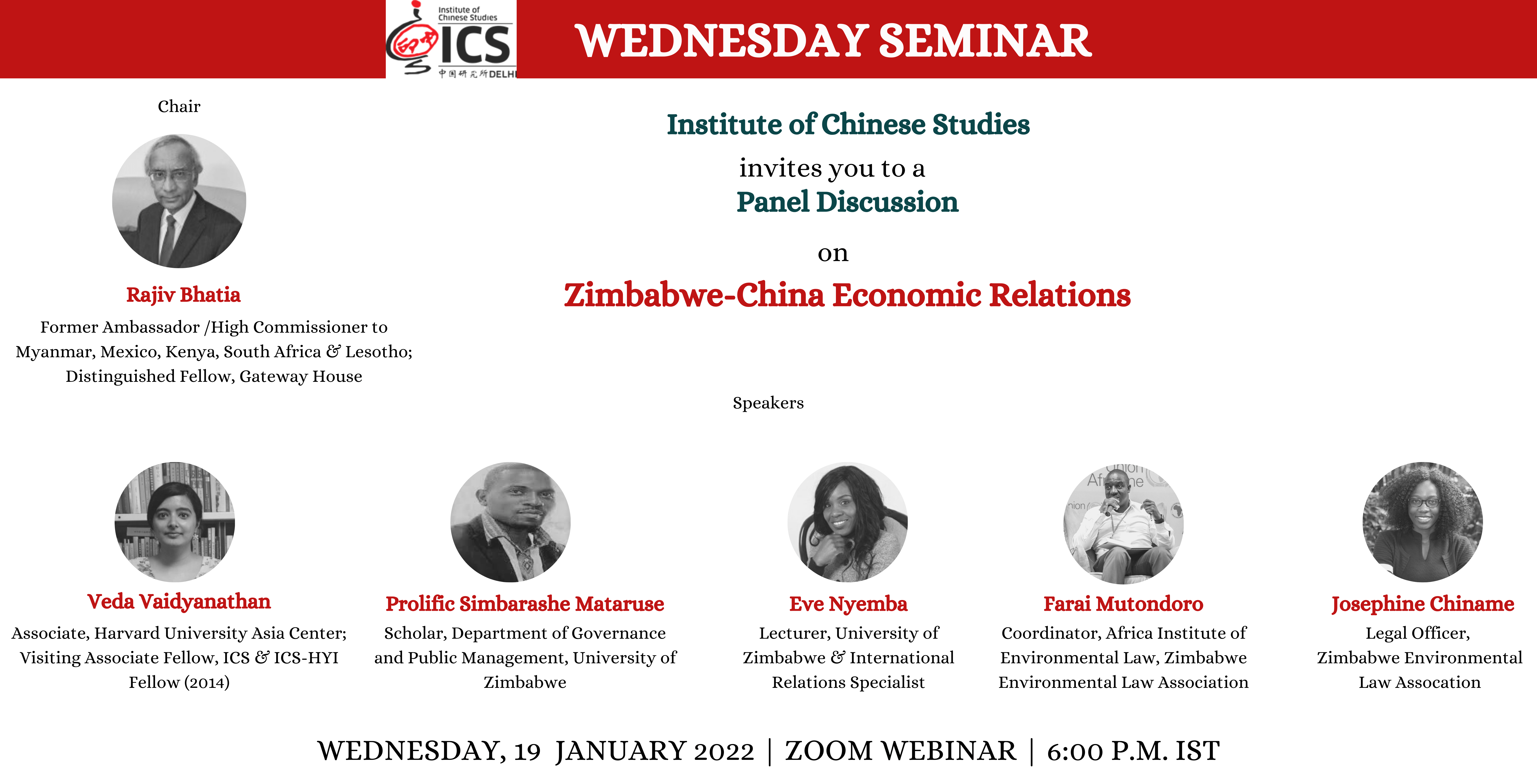 |
 |
 |
| |
| Kazakhs from Xinjiang in Bhopal during World War II |
|
Madhavi Thampi
Wednesday Seminar | Zoom Webinar |12 January 2022
|
| |
| During World War II, several hundred Kazakhs from Xinjiang took refuge in Bhopal. Based on material culled from the National Archives of India, this presentation explored what brought these Kazakhs all the way to Bhopal, nearly 2,500 kms away from their homeland. The plight of these refugees en route to India and while they were resident in India for several years was discussed in detail. The presentation also analysed how these Kazakhs survived and maintained their identity as a group, while navigating the complexities of war and turmoil in China, and an alien environment in India, while the governments of British-ruled India, the princely state of Bhopal, and Nationalist China all tussled over who would exercise control over them. It argued that the story of these Kazakh refugees is illustrative of the unprecedented diversity and flexibility in India-China interactions during the War. |
| Listen>> |
|
|
 |
| |
| Panel Discussion: Zimbabwe-China Economic Relations |
|
Veda Vaidyanathan, Prolific Simbarashe Mataruse, Eve Nyemba, Farai Mutondoro, Josephine Chiname.
Wednesday Seminar | Zoom Webinar |19 January 2022
|
| |
| The publication in discussion, ‘A Handbook of Zimbabwe - China Economic Relations’ is the outcome of a research study the Zimbabwe Environmental Law Association (ZELA) undertaken with financial support from the Ford Foundation Office for Southern Africa. To generate a deeper and holistic understanding of Chinese investments in Zimbabwe in particular and Africa in general, the study: • Analysed the impact of Chinese investments in Zimbabwe’ minerals sector especially gold, diamond and chrome in addition to the nature and role of its development finance; • Examined the relationship that exists between Chinese and Zimbabwean actors at the grassroots; • Evaluated the implications of China’s increasing engagements in Zimbabwe on democracy, good governance and sustainable development; • Sought to build capacity and facilitate knowledge transfer among young researchers. The research findings were arrived at after conducting interviews and over five focus group discussions with an average of 33 participants from Mutare, Marange, Zvishavane, Mutoko and Mudzi, ensuring that COVID-19 protocols were in place. The interviewees consisted of workers in Chinese companies, the local leadership at the village and ward levels from various communities including Chiadzwa and Mukwada, Arda Transau, Mhondongori and Mapanzure. The findings from this research study was presented at this Wednesday Seminar which will help inform policy makers, academics and civil society organizations on the nuances of Chinese engagement in Zimbabwe and beyond. |
| Watch >> |
|
|
 |
.png) |
| CHINA REPORT |
| Volume 57| Issue 4 | November 2021 |
| |
| |
| Read more >> |
|
|
 |
| ICS ANALYSIS |
| |
|
Exploration of Xi Jinping’s Concept of Common Prosperity
|
|
Shyam Saran |Issue No. 144 | January 2022
|
| |
| This paper explores the concept of Common Prosperity – a notion that has a long history but has acquired contemporary significance in its current interpretation by China’s party and state leader, Xi Jinping. It has a domestic political dimension signalling a turn towards more egalitarian policies. In its external dimension, it reflects China’s advocacy of “win-win cooperation” and its contribution to the “community of common destiny of mankind”, another signature phrase associated with Xi Jinping. |
| Read more >> |
|
|
| |
 |
| ICS ANALYSIS |
| |
|
China in the World Order: A Critical Examination
|
|
Rangoli Mitra|Issue No. 145 | January 2022
|
| |
| In 1967, A.F.K. Organski in his book ‘World Politics’, first propounded the power transition theory and predicted the rise of China, and subsequently, the decline of the West. The power transition theory is based on two important assumptions- the world is hierarchically ordered with the dominant power responsible for creating and sustaining the order; and different countries have different rates of internal development, therefore, rising and falling relative to one another. A vital element in this theory is that of dissastisfaction – the theory postulates that ‘dissatisfied’ rising powers will inevitably contest the world order. This analysis formulates two important questions based on this variable of dissatisfaction- is China a dissatisfied power? |
| Read more >> |
|
 |
| ICS ANALYSIS |
| |
| Legitimacy and Authority in Xi’s China |
|
Pavan Raghavendra|Issue No. 146 | January 2022
|
| |
| This article explores the sources of legitimacy in Chinese civilisation. While religion played a relatively minor role in China as a source of legitimacy for regimes, history, culture, and performance were more significant. In the 21st century, reacting to the impact of Western imperialism, the KMT and CCP added nationalism to the mix. In the PRC, legitimacy shifted from being centred on charisma, nationalism, and ideology under Mao to performance legitimacy under Deng Xiaoping. Under Xi Jinping, there has been a revival of the personality cult of the leader and an attempt to build his charisma, similar to the Mao era. There has also been a return to the use of history to bolster Xi’s and the Party’s legitimacy. While the party-state’s performance legitimacy may be high currently, it is not what it was earlier. |
| Read more >> |
|
|
|
| |
| ICS BLOGS |
| |
| The ICS Blog is a platform for an open dialogue that aims to inform and enlighten, especially young scholars and analysts on contemporary issues related to China and East Asia. |
| |
|
|
| |
 |
| |
|
| |
 |
| |
|
|
| |
|
|







